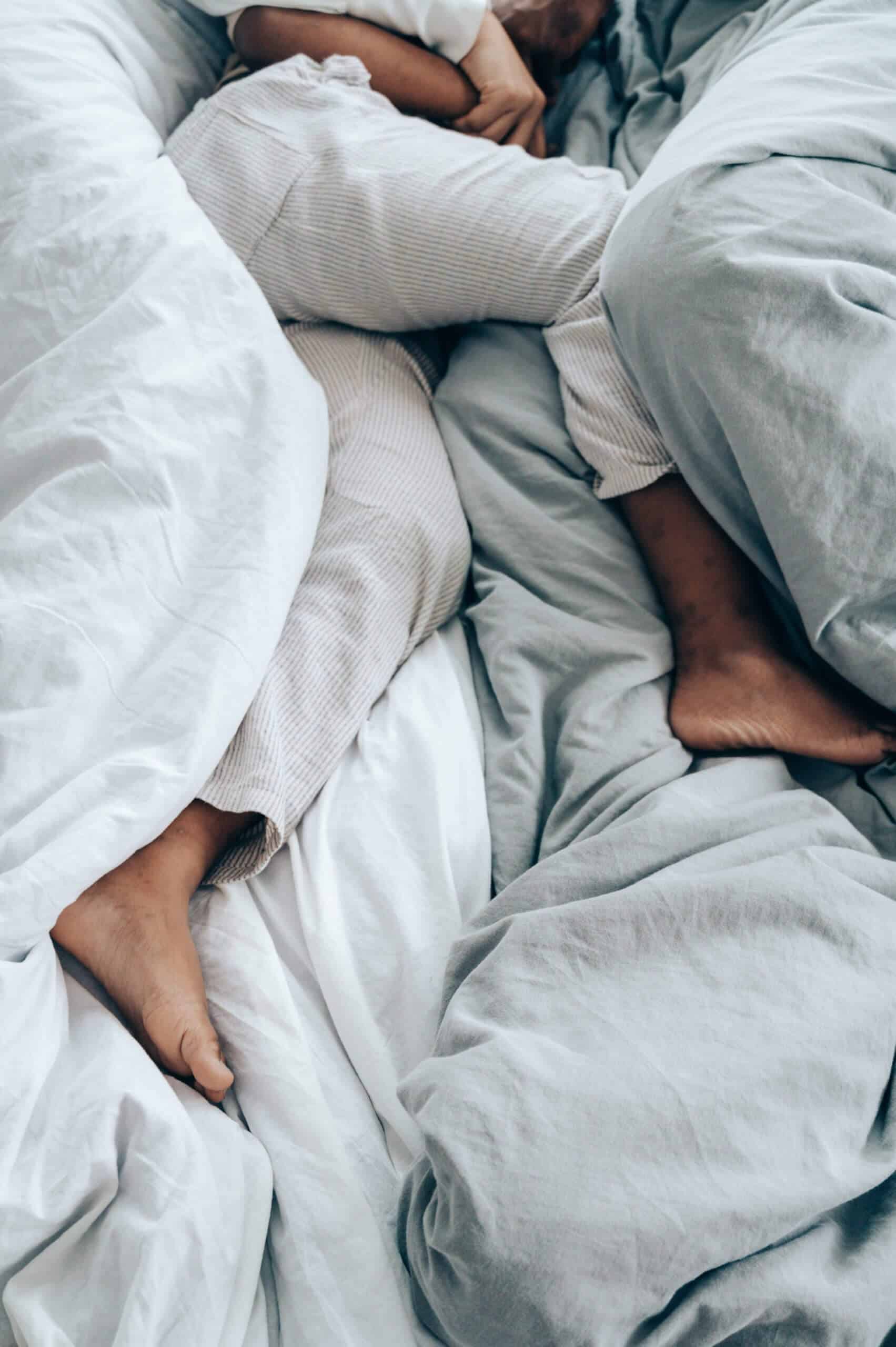
Obstructive sleep apnea is caused by the relaxation of the muscles in the back of your throat. These muscles support the tonsils, the tongue, the sidewalls of the throat, the soft palate, and the uvula, and when they relax, they close off your airway and obstruct your breathing. This prevents your blood from getting enough air and enough oxygen. When your brain detects this oxygen insufficiency, it triggers you to wake up so your muscles can engage and re-establish an open airway. It is during this brief arousal that patients suffering from sleep apnea wake up gasping for air, choking, or snorting, a process that repeats anywhere between five and 30 times per hour, all night.
A sleep apnea diagnosis must be made by a certified sleep specialist, typically following a sleep study or other extensive evaluation. However, there are signs and symptoms common in people who suffer from sleep apnea but have not yet been diagnosed.
Sleep apnea impedes your body’s ability to reach the deep, restorative phases of sleep it needs to function properly. The quality and quantity of your sleep are important for facilitating critical biological processes like repairing muscles and organs, removing toxins from the brain, and strengthening the immune system. When these processes are either interrupted or prevented from occurring—which sleep apnea does—serious health risks and conditions can result.
The extensive training dentists receive in the structure of the mouth, jaw, and teeth often makes them the first to notice signs of sleep apnea. During routine cleanings and checkups, dentists can quickly identify any irregularities that may indicate an increased risk of developing sleep apnea or signs that you may already be suffering from it. Redness in the throat, enlarged tonsils, a small jaw, a tongue with scalloped edges, and worn tooth surfaces from teeth grinding (bruxism) are all warning signs of sleep apnea that dentists can detect.
While they can’t diagnose sleep apnea, dentists can go through some screening questions to help determine if you could benefit from a sleep study or visit to a sleep specialist. Dentists can also play an important role in helping to treat sleep apnea by offering options such as oral appliances.
A CPAP (Continuous Positive Airway Pressure) machine is the most commonly prescribed treatment for sleep apnea, but patients suffering from the disorder can also benefit from a variety of other methods, including oral appliances.
By repositioning the tongue and/or lower jaw, oral appliances help maintain an open airway while sleeping. Over-the-counter night or mouth guards can provide limited, temporary relief from sleep apnea symptoms, but custom-made appliances molded by a dental professional address the cause of sleep apnea, making them much more effective in treating the disorder.
Oral appliances—which are worn only at night—also offer a more comfortable and convenient alternative to patients who either don’t wear or can’t tolerate their CPAP machine. Oral appliances are portable, easy to wear, and easy to care for. Depending on the severity of your sleep apnea, oral appliances may be recommended either on their own or in conjunction with CPAP therapy.
Oral appliances provided by a trained dental professional are very effective at treating mild to moderate obstructive sleep apnea because they prevent the muscle collapse in the throat that causes the disorder. By holding the tongue and/or lower jaw in place while you sleep, oral appliances help your airway stay open so you can breathe properly and receive adequate oxygen all night. When worn as recommended, oral appliances should virtually eliminate snoring, reduce fatigue and sleepiness, and improve your quality of sleep, helping you wake feeling rested and refreshed. Some appliances may need follow-on adjustments or fittings to maximize their comfort and performance, something your dentist or sleep specialist can help you determine.
The dental professionals at Dental Depot are experienced in identifying the signs and symptoms of many sleep disorders, including obstructive sleep apnea, as well as in their treatment. We believe good dental health is just part of good overall health, and we’re committed to helping you achieve both.
If you are concerned that you or a loved one may be suffering from sleep apnea, contact Dental Depot today to schedule an appointment. We make it easy for you to get the care you deserve, with Saturday appointments and flexible scheduling, and oral appliance therapy is covered by most dental insurance plans. Don’t wait any longer for better sleep and better health.
Request an appointment here.